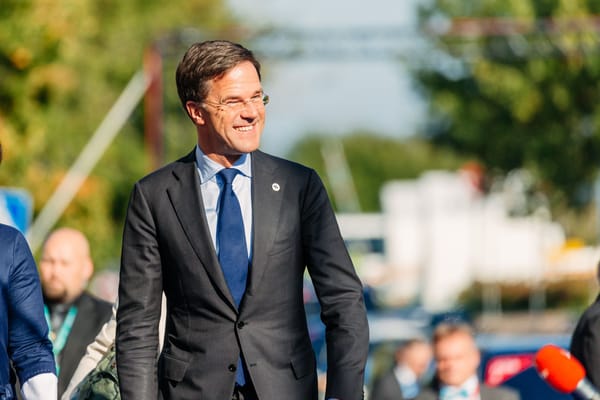In electoral terms, Dutch society is enjoying a period of remarkable stability. Mark Rutte, prime minister since 2010, is Western Europe’s longest-serving leader. With modest and reassuring manners, he seems to embody a pragmatic politics bridging left and right. Yet in recent years, the Netherlands have been rocked by unrest—from anti-lockdown protests to a farmer’s revolt that brought the country to a standstill this fall. The politics of consensus has proved unequal to growing crises.
“A supposedly pragmatic politics has abetted the rise of new forms of tyranny.”
Rutte’s trajectory—from center right to supporter of technocracy—shows how a supposedly pragmatic politics has abetted the rise of new forms of tyranny. Rutte grew up in a religious household, and he claims to be guided by a strong Protestant faith. After graduating with a liberal-arts degree, he joined the Unilever conglomerate and rose rapidly in human resources, arguably the fastest growing industry in the West over the last 30 years.
In time, Rutte emerged as one of the rising stars of the People’s Party for Freedom and Democracy, or VVD. In the 1990s, the VVD was a free-market political force, ready to criticize the European Union’s attempts to substitute national government with long-distance post-democratic rule. Its leader during this period, Frits Bolkstein, led it to unprecedented success. Yet after Bolkstein’s departure in 1999, the party became more socially liberal and technocratic, and its electoral prospects began to fade.
